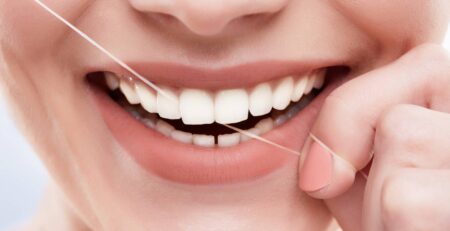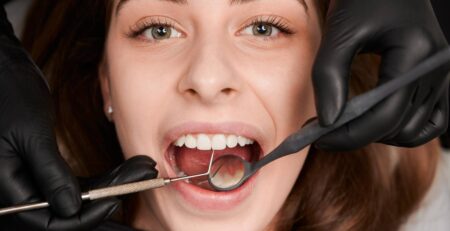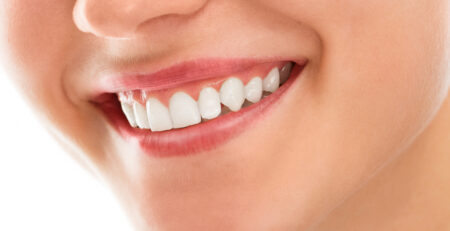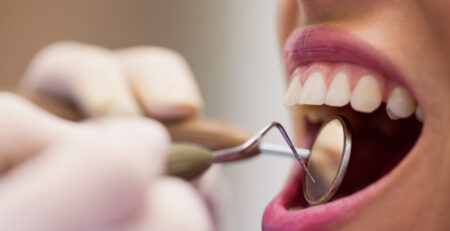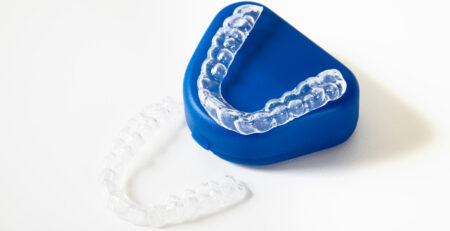Why Am I Getting Tooth Sensitivity?
Tooth sensitivity can turn everyday activities like drinking coffee or enjoying ice cream into an uncomfortable experience. Many people assume it’s just part of life, but there’s always an underlying cause. Sensitivity happens when nerves inside the teeth become exposed, often due to gradual wear or unnoticed dental issues. Understanding what’s causing it is the first step toward finding relief.
Worn Tooth Enamel That Exposes Nerve-Endings to Hot and Cold Sensations
Tooth enamel is the hardest substance in the human body, but it’s not indestructible. Over time, it can wear down due to acidic foods, aggressive brushing, or natural aging. Once enamel thins, the underlying dentin becomes exposed. This layer has tiny tubes leading directly to the nerves, making hot, cold, or even sweet foods feel painfully sharp.
Everyday habits play a role in enamel erosion. Frequent consumption of citrus fruits, soda, and vinegar-based foods can weaken enamel, while brushing too hard can strip it away faster than normal. Unlike bone, enamel doesn’t regenerate, so once it’s gone, teeth become vulnerable. Recognizing the early signs of wear, such as increased sensitivity or a dull appearance, can help prevent further damage.

Receding Gums That Leave the Sensitive Root Surface Unprotected
Gum tissue provides a natural barrier for the roots of teeth, but when gums recede, the unprotected root surfaces become exposed. Unlike enamel-covered tooth crowns, roots have no protective layer, making them highly sensitive to external stimuli. Cold air, brushing, or certain foods can easily trigger discomfort in areas where the gums have pulled back.
Receding gums can result from aggressive brushing, gum disease, or simply genetics. Maintaining a gentle brushing technique and using non-abrasive toothpaste can help slow down the process. A dentist may recommend treatments like deep cleanings or gum grafting for severe cases. Addressing gum recession early prevents sensitivity from worsening and protects the teeth from further damage.
Microscopic Cracks in Teeth That Allow Temperature Changes to Reach Nerves
Teeth may seem solid, but they can develop tiny cracks over time. These fractures, often too small to see, create pathways for extreme temperatures to reach the nerve inside the tooth. Cracks can occur from biting into hard foods, sudden temperature changes from hot to cold drinks, or even minor injuries to the mouth.
Even though these cracks may not always cause pain, they can make teeth extremely sensitive. When exposed to cold air or hot liquids, the sudden shift in temperature moves through the crack and irritates the nerve. Over time, these fractures can worsen, leading to larger breaks or even infections if bacteria enter the crevices.
Teeth Grinding That Causes Unnoticed Damage Leading to Sensitivity
Many people grind their teeth at night without realizing it. This repeated pressure wears down enamel, flattens tooth surfaces, and can even create microfractures that expose the inner layers of the teeth. Over time, this damage leads to increased sensitivity, especially when eating or drinking something hot or cold.
Grinding, also known as bruxism, often goes unnoticed until symptoms appear. Jaw pain, headaches, and unexplained tooth sensitivity can all be signs of long-term grinding. The force applied during grinding weakens the tooth structure, making them more prone to discomfort. Identifying and addressing this habit early can help minimize lasting damage.
Hidden Cavities That Are Irritating Nerves Before Pain Fully Develops
Cavities don’t always cause immediate pain. In some cases, early-stage decay can create mild sensitivity before more severe symptoms develop. When enamel starts to break down, it exposes dentin, making the tooth more reactive to temperature changes. The closer the decay gets to the nerve, the more discomfort it causes.
Not all cavities are easy to spot. Some form in between teeth or under old fillings, making them difficult to detect without an exam. Sensitivity in a specific tooth, especially when eating sweets or drinking cold beverages, can be an early warning sign. Catching cavities early can prevent them from worsening and leading to more significant pain.
Plaque Buildup Near the Gumline That Triggers Sudden Discomfort
Plaque is a sticky film of bacteria that builds up on teeth and along the gumline. If not removed regularly, it can cause irritation and inflammation, leading to sensitivity. When plaque accumulates, it contributes to gum recession and weakens enamel, both of which increase the likelihood of discomfort.
This type of sensitivity often appears suddenly, especially when eating something acidic or brushing along the gumline. The bacteria in plaque can also lead to gingivitis, an early stage of gum disease that makes gums more prone to recession. Keeping plaque under control through regular cleanings and proper oral hygiene can help prevent this kind of sensitivity from developing.
Underlying Medical Conditions That Affect Tooth and Gum Sensitivity
Sometimes, tooth sensitivity isn’t just a dental issue—it can be linked to underlying medical conditions. Conditions like acid reflux, diabetes, and autoimmune diseases can weaken enamel, affect gum health, or increase inflammation in the mouth. Even medications that reduce saliva production can contribute to sensitivity by making teeth more vulnerable to damage.
Dry mouth is another common cause of sensitivity. Saliva helps protect enamel by neutralizing acids and washing away food particles. When saliva production decreases, teeth become more exposed to erosion and decay. Recognizing the connection between overall health and dental sensitivity can help address the problem more effectively.
Take Control of Tooth Sensitivity with Expert Care at Lumina Dental – Your Trusted Partner for Lasting Relief
Tooth sensitivity isn’t something you have to live with. Whether it’s caused by worn enamel, receding gums, or hidden cavities, ignoring the discomfort can lead to bigger problems down the road. At Lumina Dental, we take a personalized approach to diagnosing and treating sensitivity, ensuring that every patient receives the best care for their unique dental needs. From gentle cleanings to advanced treatments, we’re here to help you enjoy your favorite foods and drinks without pain.
Don’t let sensitive teeth hold you back from everyday comforts. Our team at Lumina Dental uses state-of-the-art technology to pinpoint the root cause of your sensitivity and provide effective solutions that protect your smile. Whether you need professional fluoride treatments, protective sealants, or expert advice on strengthening enamel, we’ve got you covered. Take the first step toward a healthier, pain-free smile—Contact us today to schedule an appointment with Lumina Dental and get the relief you deserve.


